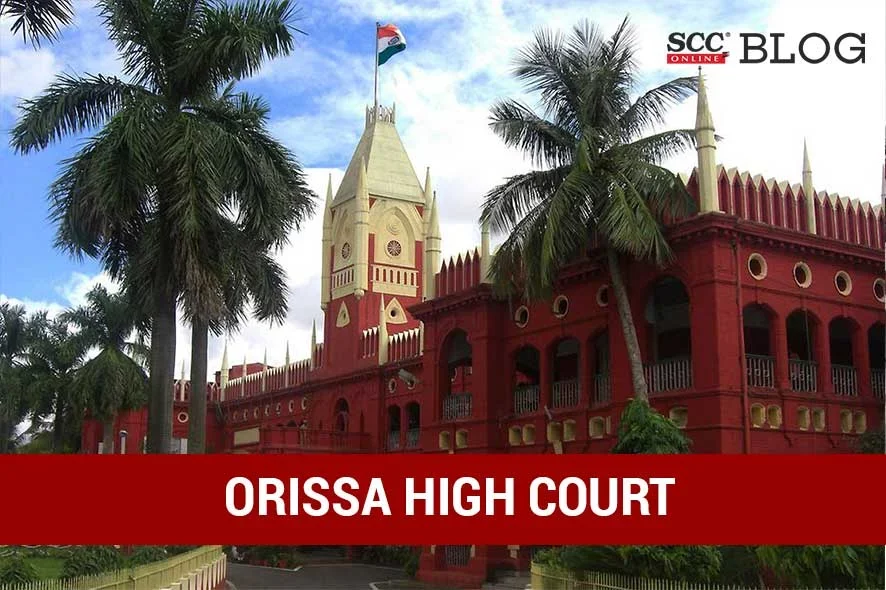Orissa High Court: In a criminal miscellaneous application under Section 482 of the Code of Criminal Procedure, 1973 (‘CrPC’) for quashing the cognizance of the offences under Sections 370(3) and 370-A(2) of the Penal Code, 1860 (‘IPC’), by the Trial Court, S.S. Misra, JJ. allowed the appeal and quashed the cognizance order by the Trial Court. The Court held that only when the customer performs his role of procuring the women for another, the offence under Section 370-A IPC could be made out.
Factual Matrix
A First Information Report (‘FIR’) was registered against the accused persons for offences under Sections 3, 4, 5, 6 and 7 of the Immoral Traffic (Prevention) Act, 1956 (‘the Act’). It was alleged that the accused persons were availing the services of a Spa Centre, where under the guise of a Spa Centre, a brothel was being run. It was also alleged in the said FIR against other persons that girls were procured and were being used for prostitution. It was alleged that the accused persons were found engaged in sexual activities with two girls when a raid was conducted at the Spa Centre. The chargesheet was filed on 17-06-2021 and apart from the said offences under the Act, two more higher offences were added i.e. Sections 370(3) and 370-A (2) of the IPC.
Decision
The Court noted that the alleged victim girls, who were found during the raid were adult foreigners from Thailand. The Court said that regarding the allegation that the girls were trafficked and thereafter sexually exploited, no evidence was collected and placed before the Court. Hence, the Court said that no conviction can be secured against the accused persons regarding the said allegation.
Further, the Court said that the accused persons were customers of the Spa where allegedly other persons were running a brothel. The Court also said that no evidence was illuminating from the record that the present accused persons were indulged in trafficking the girls who were allegedly sexually exploited. The Court said that nothing was adduced to show that the girls were sexually exploited, rather they were into prostitution out of their own volition.
The Court relied on Roopendra Singh v. State of Karnataka, 2021 SCC OnLine Kar 306 wherein the accused persons went to the brothels as customers and the criminal cases pending against them were quashed.
The Court discussed the law relating to sex work in India. The Court said that the Immoral Traffic (Prevention) Act, 1956, originally designed as “Suppression of Immoral Traffic Act” regulates the law around the subject. The Court said that the act of sexual intercourse for consideration is not illegal per se under the Immoral Trafficking (Prevention) Act, 1956, however, the intent of legislation is only to ensure that women/girls are not illegally trafficked for the purpose of prostitution, and they are exploited. The Court also noted that the Act lays down that soliciting or inducing or seducing for the purpose of prostitution is illegal but prostitution per se is not illegal.
The Court also stated that the exception to the judicial trend of exonerating the customers under the Act is limited and on the strength of weak evidence the customer cannot be tried for offences under the Act. The Court stated that “it is only when the customer performs his role of procuring the women for another, the offence under Section 370-A IPC could be employed into action against the customer”. The Court said that in the matter at hand, none of the sex workers stated that they were exploited sexually or abused or that they were trafficked. The Court also said that in the absence of material that women are trafficked for the purpose of engaging for sexual exploitation, the offence under Section 370-A (2) of the IPC cannot be attracted against the customer. Further, the Court said that it is for the prosecution to bring on record the evidence that the customers also had reasons to believe that the victims were trafficked for sexual exploitation.
Thus, the Court held that, without any material on record, the Trial Court was wrong in taking cognizance of the offences under Sections 370(3) and 370-A (2) of the IPC. Hence, the Court quashed the cognizance order for offences under Sections 370(3) and 370A (2) of the IPC against the accused persons.
[Bikash Kumar Jain v. State of Odisha, 2024 SCC OnLine Ori 826, Decided on 09-02-2024]
Advocates who appeared in this case :
For the Petitioners: Advocate Amit Prasad Bose
For the respondent: AGA B.K. Ragada






